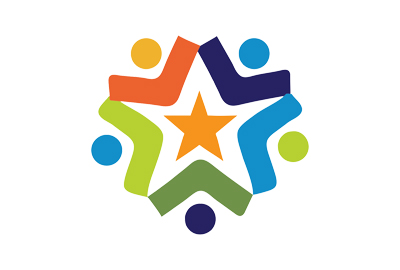

Dr. Ahmed Nuriddin
Director Preparatory Program
Bowdoin College - BA English Yale University - Cert. American Culture Columbia University - MA, Anthropology & Education Columbia University - M Ed, International Education Northcentral University - EdD, International Education
GLOBAL COMPETENCIES FOR LIFELONG LEARNING
About this Program
For youth to be job ready and succeed in their personal, social, academic and professional life, they need to develop, acquire and practice a set of life skills and abilities such as the ability to communicate, think critically while solving problems, work successfully in teams, lead when appropriate, use technology, search for information, improve human performance and act ethically and professionally. To explore and understand the world in which they live, improve their personal and professional performance and quality of life, and participate in the economic development of their country, it is eventually compelling more than ever before for the youth to be empowered with a set of global competencies for lifelong learning. The overall purpose of this program is to provide the youth with ample opportunities to develop and demonstrate competencies that prepare them to be globally competent citizens.
Program Instructional Objectives
- Develop attributes of global competent individuals.
- Use critical thinking to solve social, academic and professional problems.
- Acquire the competencies of coordinating with others.
- Attain traits of emotional intelligent individuals
- Possess traits of competent negotiators.
- Possess the knowledge, skills and attitudes of cognitive flexible individuals.
- Develop the knowledge, skills and attitudes of competent creative thinkers
- Develop the knowledge, skills and attributes needed for managing and leading people.
- Build up the acquired traits of competent decision makers.
- Acquire the knowledge, skills and attributes of competent service oriented individuals.
- Self-assess their development of the global competencies.
Program Learning Outcomes
- The usage of reasoning and critical thinking abilities.
- Problem solving abilities while addressing and assessing academic, social and professional issues.
- Knowledge, skills and attributes that allow them to work with different groups successfully.
- The ability to generate creative ideas.
- Knowledge, skills and attitudes for managing and leading people
- Traits of emotional intelligence.
- The application of decision making skills.
- The ability to apply service orientation skills.
- Attributes of cognitive flexible individuals.
- Knowledge, skills and attributes of successful negotiators.
Instructional Framework
The teaching, learning and assessment model of the program is premised on Vygotsky’s time honored notion of Zone of Proximal Development (ZPD). Vygotsky’s ZPD refers to two learning dimensions: The first dimension refers to learners’ current academic level and the second dimension refers to where learners’ performance level should be by the end of an educational program. Vygotsky’s learning principle, Zone of Proximal Development, is the distance between the level of learners’ ability to understand and apply the competence and its affiliated skills and the Level where the instructor needs them to be as determined by their ability to demonstrate their development of the required competencies collaboratively within a scaffolded, engaging and dynamic learning environment. Vygotsky’s Zone of Proximal Development necessitates a scafolded learning environment that focuses on six elements:
- Analyzing trainees’ entry level to ensure that they have the required entry level. This is to be achieved through a Pre-test.
- Designing teaching, learning and assessment strategies that take into consideration participants’ different learning styles.
- Developing instructional materials that instill in students the acquired knowledge, skills and attitudes necessary for competence development.
- Implementing the instructional strategies within a dynamic and engaging learning environment.
- Assessing participants’ learning outcomes through in class activities and group projects.
- Evaluating the program through perception survey, focus group, interviews and analysis of participants’ end of workshops assignments and projects.
Scope of the Program
- The instructional materials of the ten competencies centralize Authentic, real life scenarios and examples.
- The training modules include self-assessment tools for deep learning to take place
- The instruction hours for each competence = 3 hours
- The 10 competencies are divided into 3 groups
- Group 1: Problem Solving, Critical Thinking, Creativity, Coordinating with Others will be covered in 12 hours.
- Group 2: People Management, Judgment and Decision Making, and Service Orientation will be covered in 9 hours.
- Group 3: Emotional Intelligence, Negotiation, Cognitive Flexibility will be covered in 9 hours.
Duration of the Program
Course Index
Introduction
Competency Instructions
The lecture
Learning Resources
Assessment
Competency Instructions
The lecture
Learning resources
Assessment
Competency Instructions
The lecture
Learning recourses
Assessment
Competency Instructions
The lecture
Learning resources
Assessment
Competency Instructions
The lecture
Learning resources
Assessment
Competency Instructions
The lecture
Learning resources
Assessment
Competency Instructions
The lecture
Learning resources
Assessment
Competency Instructions
The lecture
Learning Resources
Assessment
Competency Instructions
The lecture
Learning resources
Assessment
Competency Instructions
The lecture
Learning resources
Assessment
Conclusion


